State properties find new purpose as hubs for non-profits and charities
Sign up now: Get ST's newsletters delivered to your inbox
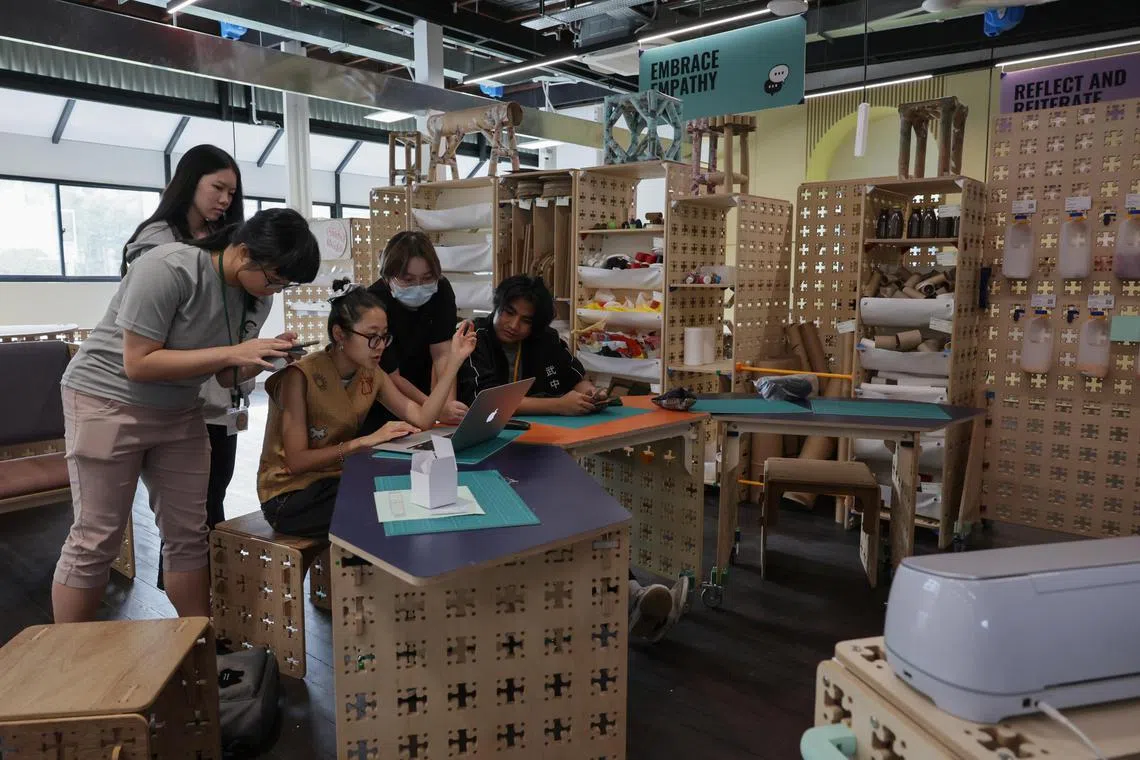
Vivita Singapore turned a state-managed Kampong Eunos space into a creative centre and a place for learning called Vivistop.
ST PHOTO: GIN TAY
SINGAPORE – At the former Kampong Eunos Community Centre at 10 Kampong Eunos, a group of young people from different socio-economic backgrounds have come together to dabble in hands-on projects in robotics and artificial intelligence.
Since March, non-profit organisation Vivita Singapore has converted the state-managed space, which is now called Vivistop, into a creative centre for young people and a place for the community to gather for learning. The group organises interactive programmes, workshops, camps and competitions.
After ending their lease at *Scape in Orchard in 2022, Mr Lee Hoi Leong, co-founder of Vivita Singapore, said they were looking for a bigger and more affordable space that could bring them closer to the community.
“The space that we had in *Scape was around 2,800 sq ft... At Vivistop, we have the indoor and the outdoor space to use,” he said, adding that rental at commercial spaces was much higher than the rent for this state property.
Vivistop has a gross floor area of about 7,350 sq ft and a land area of 21,743 sq ft.
In support of the Forward Singapore movement – a national strategy for a more vibrant and inclusive Singapore – the Singapore Land Authority (SLA) has increasingly made available state properties for the use of social and community good.
SLA manages approximately 11,000ha of state land and about 2,600 state properties. Vacant state properties not set aside for immediate development are put out for interim use across residential, commercial and social purposes.
In 2023, there were more than 150 social tenancies comprising conventional uses such as halfway houses, nursing homes and special education schools, alongside newer entrants such as social and sustainability impact hubs, like Vivita’s.
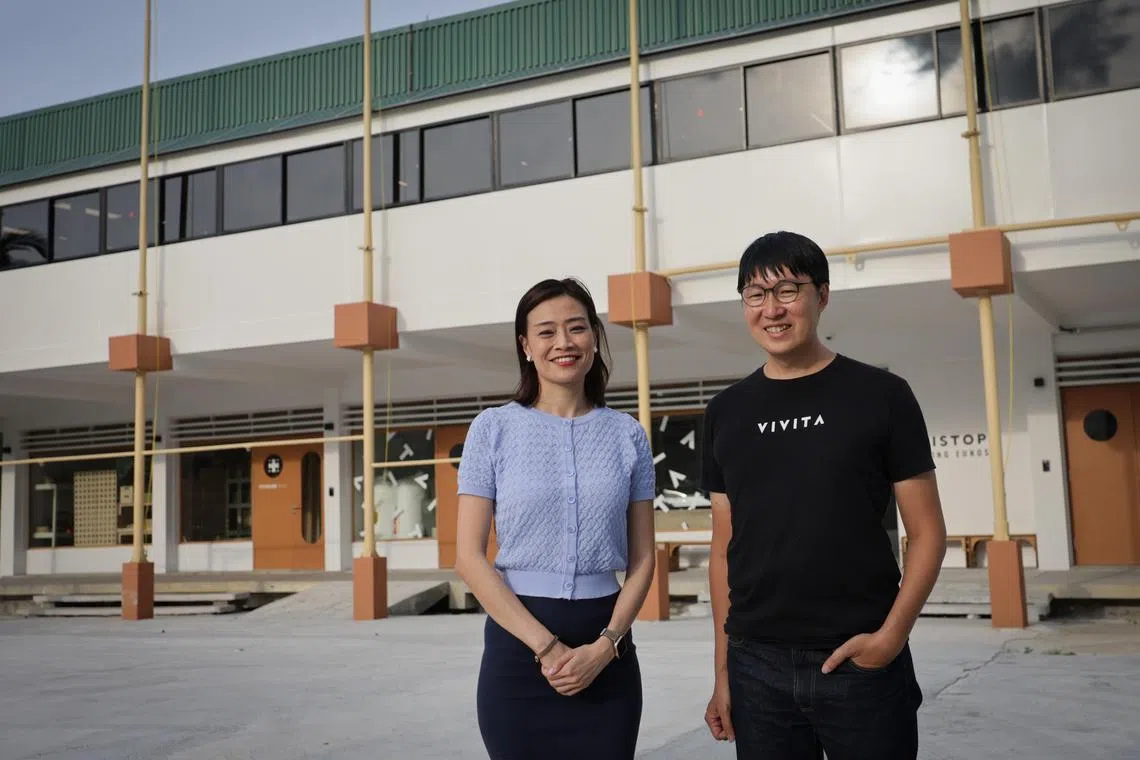
SLA looks at how interim spaces can promote social cohesion, says its director of business planning Carrie Wong, seen here with Vivita Singapore co-founder Lee Hoi Leong.
ST PHOTO: GIN TAY
Ms Carrie Wong, SLA’s director of business planning, said it has recorded a 50 per cent increase in the number of social entities repurposing state properties for emerging social and community uses in the past three years, compared with the period from 2019 to 2021.
Various factors are considered in order for state properties to be adapted for social and community uses, she said, adding that SLA also looks at how these interim spaces can promote social cohesion and community well-being.
Apart from approval by relevant government agencies, Ms Wong said that some factors include market demand and how compatible proposed uses are with surrounding developments.
“In addition, care is taken to assess the accessibility of the location of the property, as well as its impact on the surrounding environment to ensure minimal disamenities to the surrounding residents and members of the public.”
She added that by extending the life of state properties through adaptive reuse, this allows SLA to be more sustainable, as less resources are used to build new properties in Singapore, while maximising returns from existing properties’ carbon footprint. It would also bring vibrancy to the precinct.
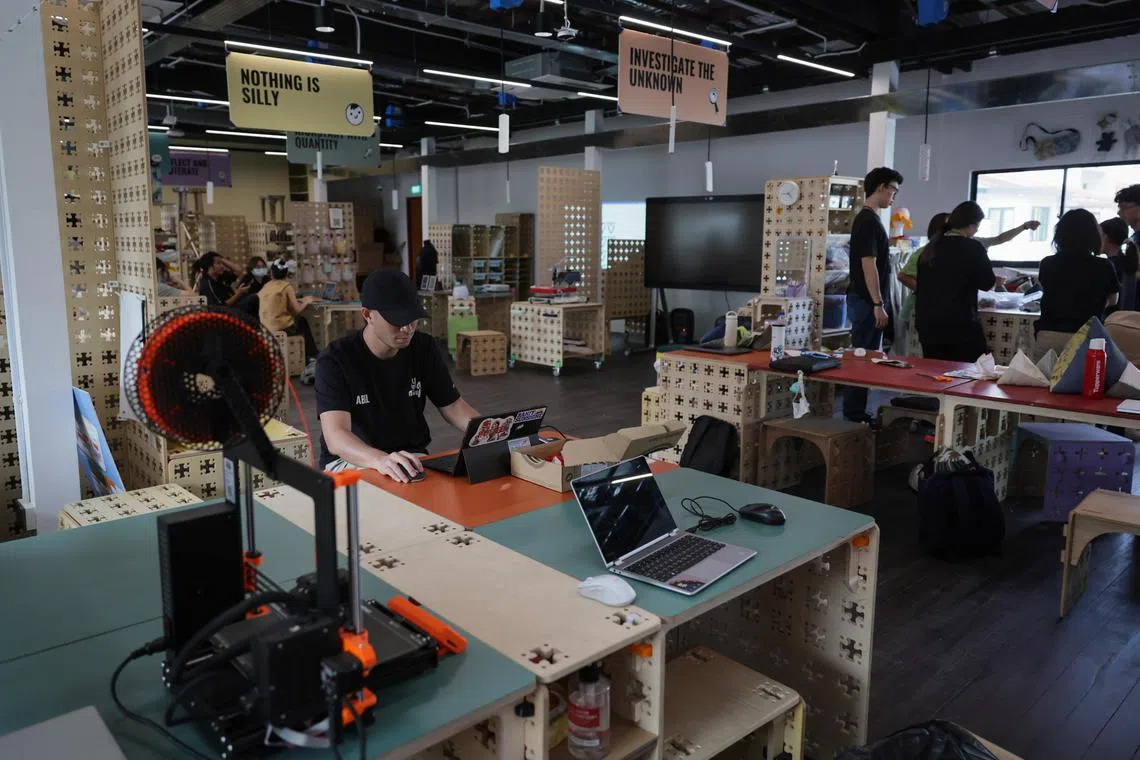
Non-profit organisation Vivita Singapore organises interactive programmes, workshops, camps and competitions.
ST PHOTO: GIN TAY
To provide users such as social impact organisations with a longer runway for resource planning and longer-term certainty to trial creative concepts, SLA has increasingly offered upfront tenures of five years, renewable for another four years. This is compared with the previous tenure period of three years, which could be renewed for a total lease period of nine years.
Mr Lee said that Vivistop is currently on a five-year contract, and would most likely extend it after that.
“Rental aside, the outdoor space that we have is something that would not have been possible with commercial spaces. In a shopping mall, there would have been no way for us to have such a big ‘front yard’,” he said.
At this new space, Vivistop also has more control of the programmes it can run, instead of having to seek clearance for activities when located in commercial spaces.
Vivistop runs a community creative studio, and primarily caters to children and young people between the ages of nine and 16.
They currently have over 400 members, and hope to host more in their new space by working with community partners and schools.
Temasek Shophouse is another social impact hub. It is located in a row of state properties in Orchard Road.
Since its launch in 2019, more than 300 programmes have been conducted there, including community engagement events, educational exhibitions, and workshops on a range of social and environmental issues.
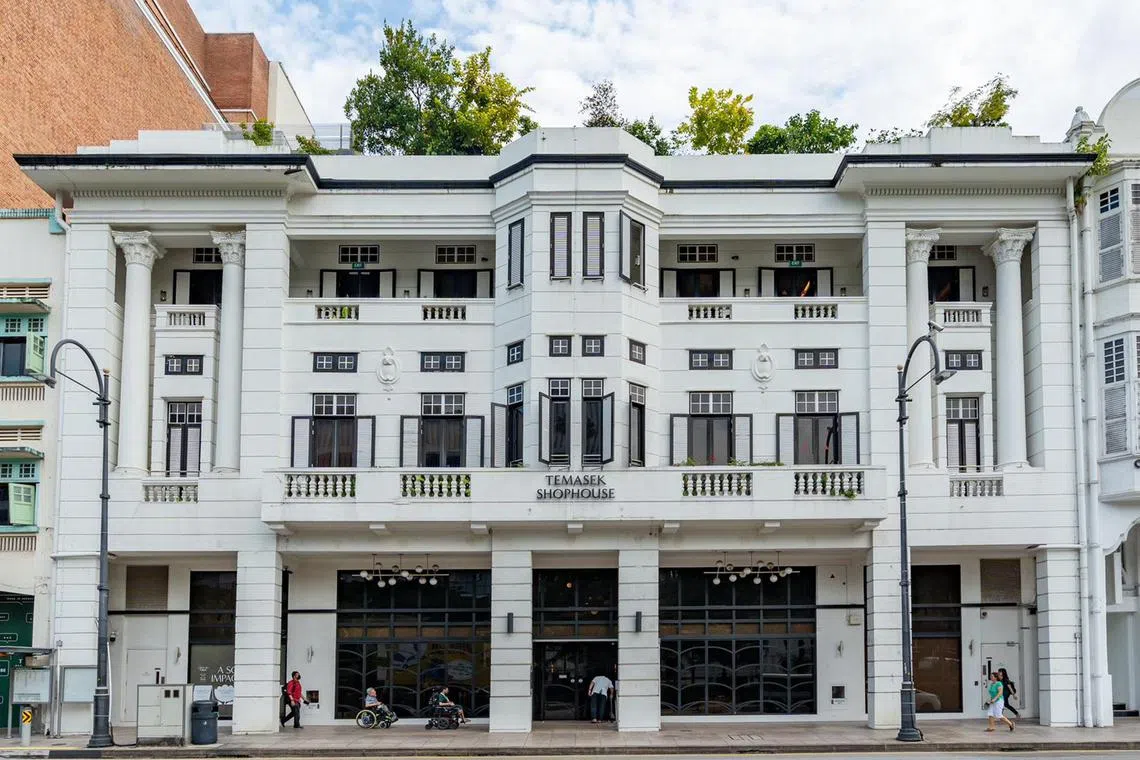
Over 300 programmes, including exhibitions, were held at Temasek Shophouse, a social impact hub in Orchard Road.
PHOTO: SINGAPORE LAND AUTHORITY
Built in 1928 by two businessmen born in Melaka, this building was originally conceived as a town house, with a commercial space on the first floor and residential apartments above.
Now, as a home to Temasek’s philanthropic arm – Temasek Trust, Temasek Foundation and Stewardship Asia Centre – it is undergoing expansion works, and is slated to reopen once renovation works are completed in 2025.
Ms Yvonne Tay, general manager of Temasek Shophouse, said: “A lot of careful thought and consideration went into ensuring that the building is not just fit for contemporary use, but that it honours the heritage of the past, and that it is also sustainable for the future.”
Its current unit is at 28 Orchard Road. It is being expanded to include adjacent shophouses along the same stretch – 16, 22, and 38 Orchard Road.
This will add about 4,100 sq m of space, bringing the total space to 6,400 sq m.
As a social impact hub that promotes initiatives for the common good, it has hosted events like Let’s Jam: Fellowship of Musicians that was co-curated with local music veteran Clement Chow, who recorded and performed Count On Me, Singapore in 1986.
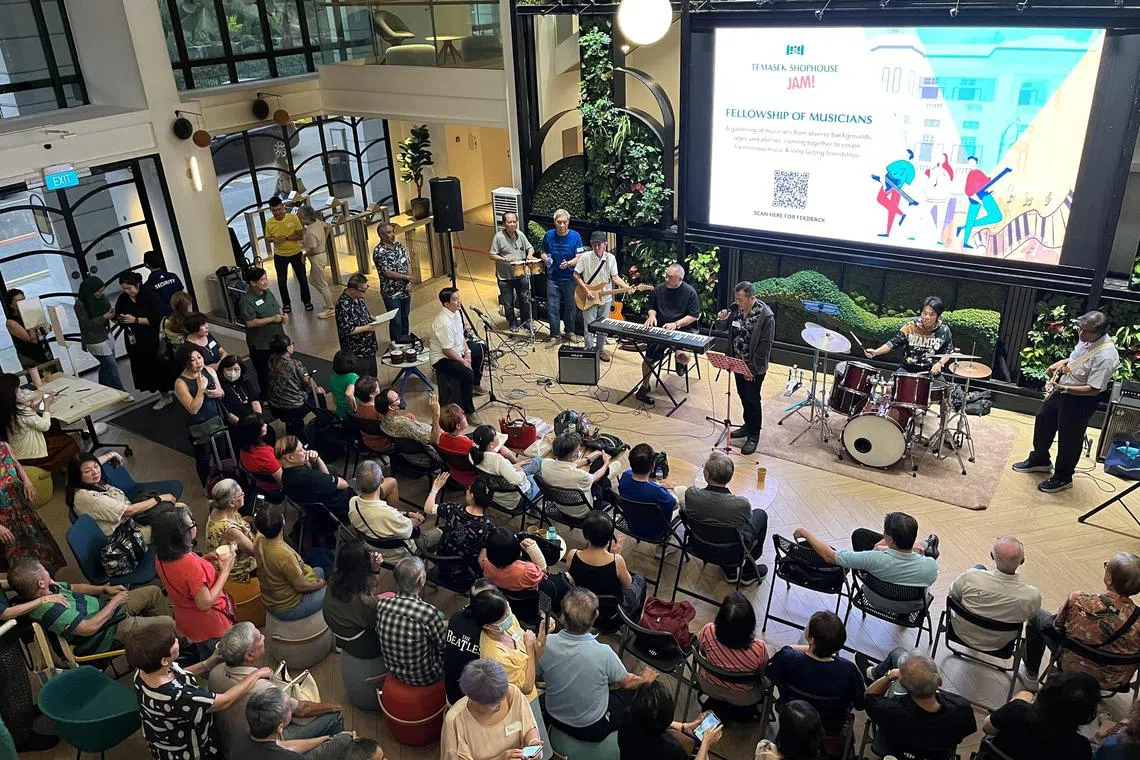
Temasek Shophouse hosted events like Let’s Jam Music Fellowship, which grew from 30 participants to more than 200 over 13 weeks.
PHOTO: TEMASEK SHOPHOUSE
Meant to be an opportunity for musicians to jam together post Covid-19, the weekly event that started in September 2023 grew from just 30 participants to more than 200 over 13 weeks.
Ms Tay said that growing demand and successful events like the jamming sessions gave them the confidence to take up more space to cater to the growing needs of “changemakers”, or people who take creative actions to solve social problems.



